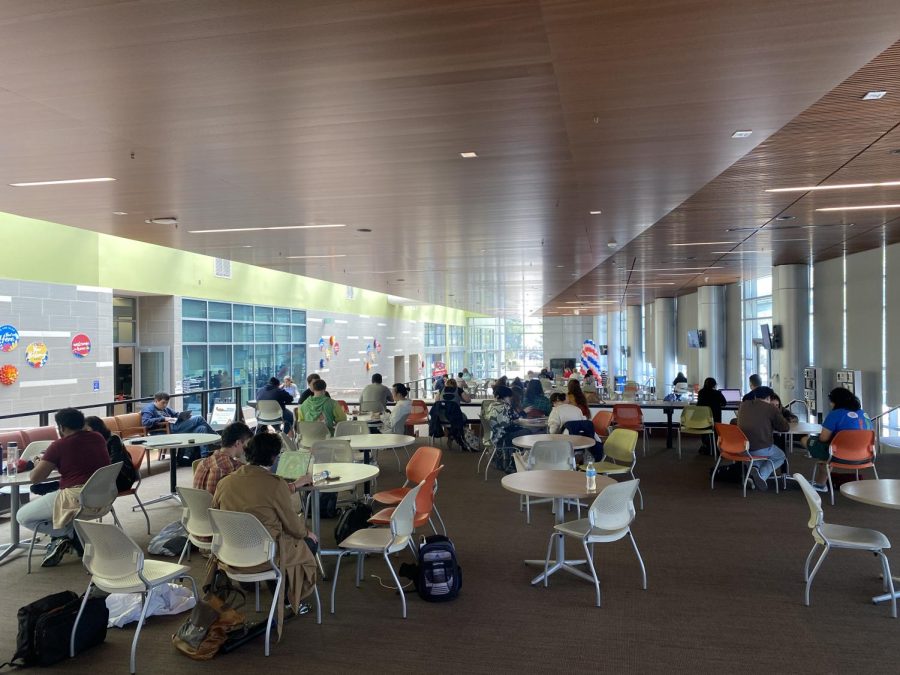Enrollment has increased at ARC since the spring 2022 semester
Online classes allow fraudulent enrollment to persist
Enrollment is back up at American River College and the number of in-person classes has increased, even as the continuation of online courses has allowed fraudulent enrollment to persist.
The data available for the spring 2023 semester are still estimates. According to the information given by Jennifer Laflam, ARC’s dean of institutional effectiveness and innovation, so far this semester there are 49,613 students enrolled. Specifically, 28,029 are asynchronous online, 5,653 are hybrid and 12,257 are in-person classes.
In comparison, in spring 2022, asynchronous online enrollment was 32,749 and in-person enrollment was 5,416.
The increment of in-person classes sticks together with the growth of the number of students around campus, even if it is perceptible that is not the same as it was before the pandemic.
Enrollment numbers reflect the number of classes students are enrolled in, according to Laflam.
“If one student enrolled in three classes, then those three classes are counted in the enrollment numbers,” Laflam said in an email to the Current.
According to Laflam, the numbers related to asynchronous and synchronous online classes are dropping while hybrid and in-person classes are escalating.
Fraudulent enrollment has also had an impact on enrollment. During this time, students faced full classes and professors diligently monitored their rosters to watch for and remove fraudulent enrollments.
Fraudulent enrollment occurs when a student enrolls at the college and signs up for classes in order to receive financial aid—but then never attends the class.
According to Gabe Ross, chief strategy and communication officer for the Los Rios Community College District, the state community college system has one of the most accessible and open application processes in all of higher education.
“As a result of how easy it is to apply for enrollment in a community college, there have unfortunately been individuals suspected of fraud,” Ross said in an email to the Current. “They have tried to take advantage to get access to a .edu email address for access to student discounts and federal financial aid.”
According to Ross, fraudulent enrollment is a statewide issue. Due to this, the LRCCD has taken important steps to protect itself from falling victim.
“We have a new robust process that has been heralded at the statewide level as the best practice,” Ross said. “It analyzes new student applications and rejects those that are likely to be fraudulent based on complicated and detailed evaluation of the data they submit.”
There has also been a change of protocols that may make LRCCD colleges seem less appealing to those attempting to gain access for fraudulent means, Ross said.
“Our faculty does an excellent job managing their rosters and dropping students who are not actively participating in classes in time for other waitlisted students to access the class at the start of the term,” Ross said.
Not all professors have seen an uptick in fraudulent enrollment, however.
Adam Windham, professor and associate vice president of instruction and enrollment at ARC, says he’s only been minimally affected by fraudulent enrollment.
“I expect this was because of the automatic prerequisite checking for Math and Statistics classes at ARC, which would have made enrollment more complicated for fraudulent accounts,” Windham said in an email to the Current.
People have always been trying to scam the system, according to Windham. But the problem has gotten worse in recent years.
“The issue seems to have peaked statewide in fall 2021 when it grew so large the LA Times did an article on the problem,” Windham said in an email to the Current.
Schools have cracked down on preventing fraudsters from wreaking havoc. According to Windham, fraudulent enrollment at LRCCD has been on the decline since 2021.
“Fortunately, we have not seen anything on that scale since our district team has implemented their new screening process for fake accounts,” Windham said.










